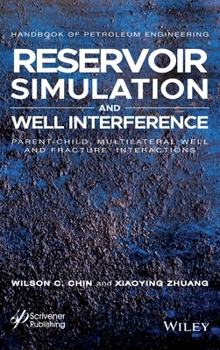Reservoir Simulation and Well Interference: Parent-Child, Multilateral Well and Fracture Interactions
Co-written by a world-renowned petroleum engineer, this breakthrough new volume teaches engineers how to configure, place and produce horizontal and multilateral wells in geologically complicated reservoirs, select optimal well spacings and fracture separations, and how to manage factors influencing well productivity using proven cost-effective and user-friendly simulation methods.
Charged in the 1990s with solving some of petroleum engineering's biggest problems that the industry deemed unsolvable, the authors of this innovative new volume solved those problems, not just using a well-published math model, but one optimized to run rapidly, the first time, every time. This not only provides numerical output, but production curves and color pressure plots automatically. And each in a single hour of desk time.
Using their Multisim software that is featured in this volume, secondary school students at the Aldine Independent School District delivered professional quality simulations in a training program funded by some of the largest energy companies in the world. Think what you, as a professional engineer, could do in your daily work. Valuable with or without the software, this volume is the cutting-edge of reservoir engineering today, prefacing each chapter with a trade journal summary followed by hands-on details, allowing readers to replicate and extend results for their own applications.
This volume covers parent-child, multilateral well, and fracture flow interactions, reservoir flow analysis, many other issues involving fluid flow, fracturing, and many other common unsolvable problems that engineers encounter every day. It is a must-have for every engineer's bookshelf.





